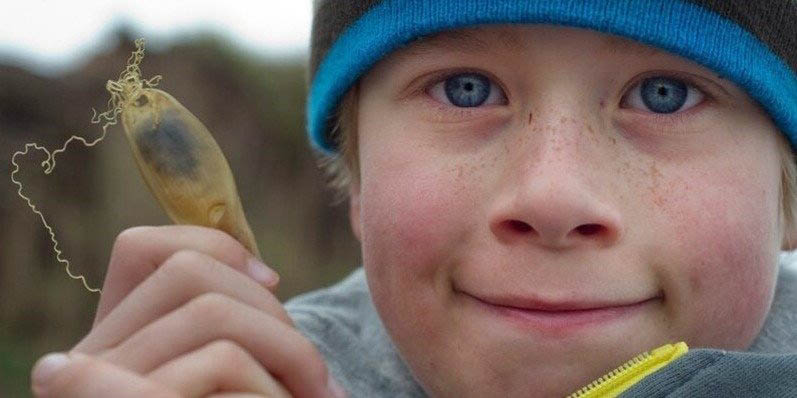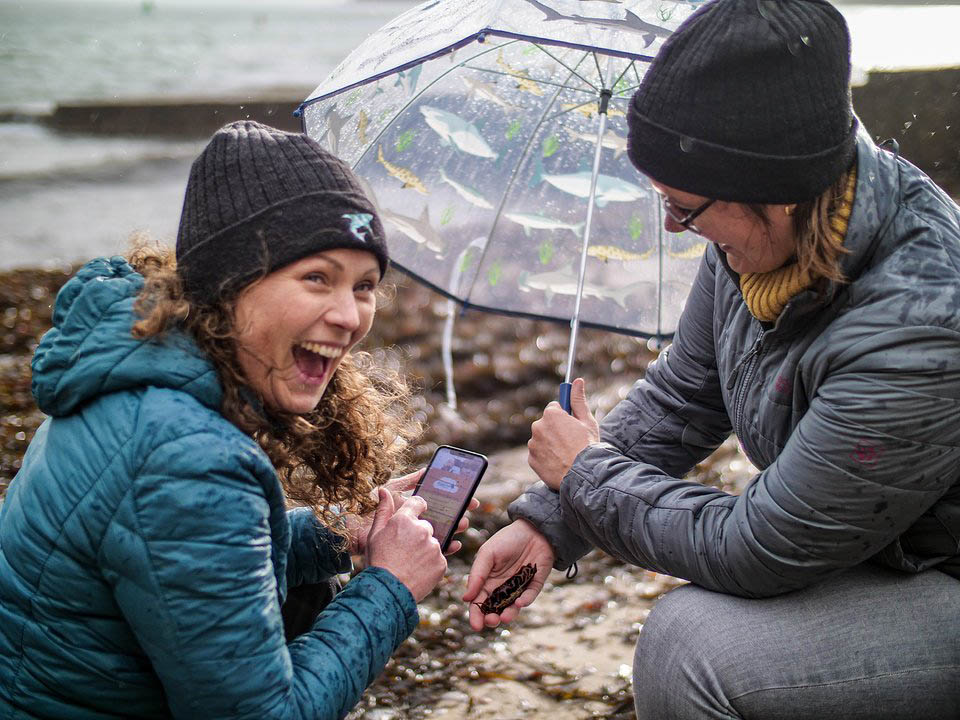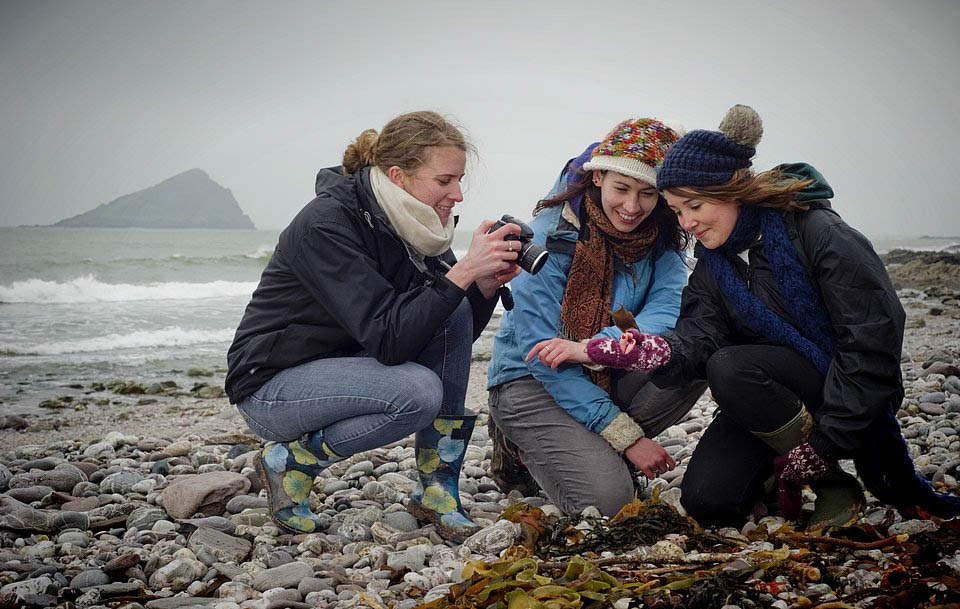Stuck for ideas on what to do over the Easter Holidays? Want to get outside and do something fun to work off all that chocolate? Want to get closer to nature? The Shark Trust has an Easter Egg Hunt with a difference for you to try. Take part in the Great Eggcase Hunt and get involved with a big citizen science project that helps shark and skate conservation.
2023 marks the 20th anniversary since the Great Eggcase Hunt began. To celebrate this monumental milestone, the Shark Trust has launched a new app that features the Great Eggcase Hunt along with four other citizen science projects to take part in. Through these projects, anyone with an interest in sharks, skates and rays can contribute to valuable research by submitting your eggcase finds or shark sightings – while unlocking collectable shark cards as you build your logbook of finds.
Senior Conservation Officer Cat Gordon says “We’re really excited to be celebrating the Great Eggcase Hunt’s 20th anniversary this year! The project has evolved so much since it first began back in 2003. We’re now well on our way to receiving half a million eggcase records!”
New finds from around the world are regularly being added to an ever-growing database. The project now has an impressive 440,000 eggcases recorded from a total of 49 species documented from 30 countries.
Cat goes on to add “One eggcase find may not seem that significant on its own, but when all of this information is brought together it can help us better understand species presence and diversity. It’s also a great way to get involved in shark conservation, and of course, it’s fun – and not to mention competitive!”
Last year saw over 51,600 eggcases recorded in total, and 2023 has got off to a flying start with 22,400 eggcases already recorded since January! It looks set to be a bumper year. During last year’s two-week Easter holidays, we had 7,560 eggcases recorded – this Easter we’re on a mission to keep up momentum and beat the number of submissions!
So, what actually is an eggcase? Some sharks, and all true skates, reproduce by laying eggs. These are surrounded by a tough leathery capsule that protects the embryo as it develops inside. Small slits in the eggcase allow fresh oxygenated seawater in, and let waste out, while a yolk sac provides plenty of nutrition. After several months (although this will vary depending on species) they are ready to hatch. The top of the eggcase will open and a fully formed shark or skate will emerge and be completely independent, having to fend for itself. Once empty, the eggcases (or mermaid’s purses) often wash up on the beach.
You don’t need to be part of an organised event to join in with an eggcase hunt (although check with your local marine centre or aquarium to see if there is one running near you!). All you need to do is head to your nearest beach and take a look around to see what you can find. The best places to search are in the strandline where seaweed and debris washes up, and in sand dunes at the back of the beach as they often get trapped in the grass.
The eggcases of different species vary. So, once you’ve found an eggcase, look at the size, shape, and features to identify which species it belongs to – we’ve developed identification resources to help you figure it out! Once you’ve got your answer, head over to the Shark Trust’s Recording Hub or use the new citizen science app to submit your finds.
The Shark Trust is continuing to add to the project’s resources by developing regional identification materials, collaborating with additional partners, and will soon be releasing a series of videos to help those who want to take part in the project and become Eggcase Champions – so watch this space for further developments.
Paul Cox, Shark Trust MD, said “The Great Eggcase Hunt makes for a fantastic family day out at the beach. Once you spot your first one, you’ll find it hard to stop! So get involved with shark conservation and have fun too!”









